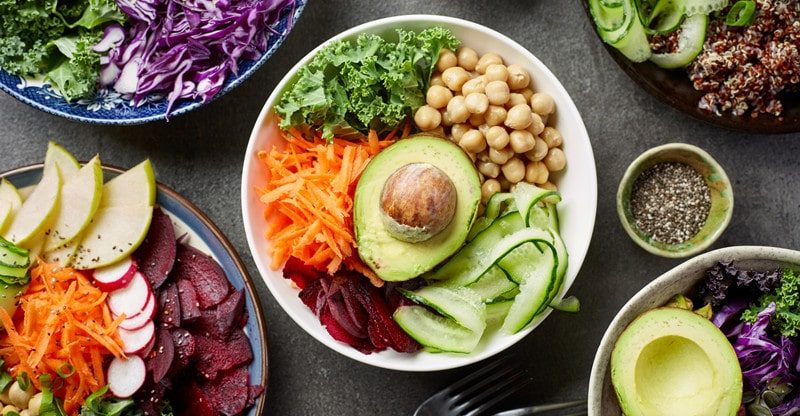Going Vegan: 6 Misconceptions To Dispel
Vegan diets are said to be growing more popular as the days pass by. Now that this diet is gaining mass approval, many are trying them out. Though it’s generally considered a healthy option, there are many misleading misconceptions around it. It’s high time to debunk them all once and for all in this blog.
What’s The Vegan Diet
The vegan diet is entirely composed of vegetables and sources of protein that aren’t derived from animals. It’s a plant-based diet that many health enthusiasts follow. Vegans don’t eat anything that comes from animals including meat, eggs, and honey. Fats, carbohydrates, and proteins are all plant-derived.
While becoming vegan may be motivated by health or ethical considerations, it’s a life-altering and daunting choice. Being vegan may also help address food sustainability and environmental concerns, which organizations, like Murphy’s Produce and others like it, advocate for.
Dispelling Common Vegan Diet Myths
It’s difficult to discern what to trust in terms of nutrition and health. Numerous misconceptions about the vegan diet are the result of widespread misinformation by people who aren’t familiar with it. False or contradictory information spreads rapidly, making it difficult to remain informed about the truth.
Many people are believed to still have misunderstandings about the health benefits, taste, and safety of a vegan diet. It’s best to refute these misconceptions using reliable science and data that can be trusted. Consider the following list of vegan diet misconceptions to help eliminate any worries and apprehensions you may have regarding the switch to a new diet regimen.
1. Vegan Diet Is Too Restricting
The vegan diet is frequently linked with words like deprivation, restriction, or limitation. The reality of a vegan diet, on the other hand, is quite different. When you replace animal goods with plant-based alternatives, you become more aware of the benefits plants have to give.
With so many healthy and beneficial plant-based food items available, meal preparation quickly becomes an experience instead of a habit. And this greater variety not only appeals to foodies but also has purported health advantages.
In fact, many food establishments today have their own vegan offerings for restaurant-goers who are looking to enjoy eating out.
2. Vegan Diet Is Iron-Deficient
There are no adequate grounds as to why a vegan diet can’t provide sufficient iron. Iron is said to be in a wide variety of foods, including nuts, green vegetables, and lentils. It’s a fact that the body readily absorbs iron obtained from animal products compared to plant-based ones.
However, you may increase your iron absorption from plant-based meals by combining them with a good source of vitamin C. Food items rich in vitamin C includes oranges, broccoli, red peppers, or cauliflower. You should also abstain from consuming tea during mealtime since it has tannins that inhibit the body’s iron absorption.
3. Vegan Diet Is Nutrient-Deficient
Although it’s often believed that a vegan diet is deficient in vital nutrients, this is more a matter of food selection and not the diet itself. Being a vegan may need a bit more preparation and understanding about food. However, once you have a firm grasp on food items in your diet, creating nutritionally balanced meals could become a way of life.
4. Vegan Diet Is Boring And Bland
Consuming a vegan diet doesn’t require you to consume just salads. This diet exposes you to an incredible array of food items, spices, tastes, and colors solely derived from plants. Plant-based meals are overflowing with color and flavor. All you have to do is learn how to prepare them properly.
Herbs and spices are important for flavoring vegan meals. You may produce a great savory flavor by making stocks and sauces with dried mushrooms, nori, or miso. Experimenting with new flavors and preparations may broaden one’s taste and experience in the kitchen. You may have a lot of fun experimenting with your meals to create something delectable.
5. Vegan Diet Doesn’t Provide Enough Protein
Providing that you consume adequate calories to keep a healthy weight and consume a diverse and nutritious vegan diet, you’re most likely guaranteed to receive sufficient protein. While many vegan meals are protein-dense, you may need to consume more of them to equal the protein content of animal-derived food items.
It’s also helpful to eat a diverse variety of plant-based products to meet the required amino acids for protein synthesis. Tofu, beans, legumes, and chickpeas are just a few examples of plant protein-rich food items.
6. Vegan Always Means Healthy
Not every food derived from plants is healthy and nutritious. Quite a few processed vegan products are rich in sugar, sodium, and saturated fats. Many people believe that a diet composed mainly of vegetables and fruits is the healthiest option. However, this doesn’t imply that every vegan food item fulfills these criteria.
When food is extensively processed, a significant amount of its essential nutrients may be removed. Although potato chips and cereals are legally devoid of animal ingredients, this does not mean they’re purely healthy and good for the body. Most of these products are heavily laden with sugar and salt.
In summary, it’s best to choose your meal options wisely whether you’re on a vegan diet or not.
Conclusion
Don’t allow the different misconceptions revolving around the vegan diet to overshadow the many advantages it presents. By eating a well-balanced plant-based diet, you may improve your wellness and improve your life’s quality and longevity.




